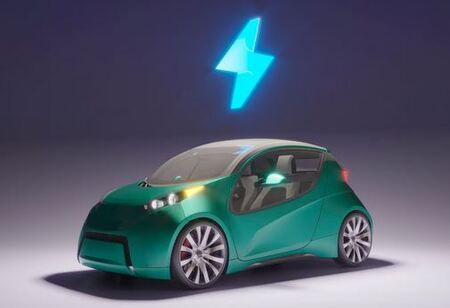
EV Sales Penetration in India to Cross Seven Percent by FY28


In India, the sales of electric cars are expected to surpass seven percent by fiscal year 2028, according to a report published on July 16, 2025 by CareEdge Advisory.
The forecast is contingent upon the prompt resolution of the disturbance caused by rare earth elements and the ongoing development of government infrastructure.
In just three years, India's electric car market has expanded from just over 5,000 units in fiscal year 2021 to over 107,000 units in fiscal year 2025—a 21-fold growth.
Currently, two- and three-wheelers continue to dominate the market for electric vehicles, with electric four-wheelers making up a modest percentage of overall sales.
Through programs like FAME III, the Production Linked Incentive Scheme for advanced chemistry cell batteries, and basic customs duty exemptions on vital battery minerals like cobalt, lithium-ion waste, and graphite, the Indian government has committed to reaching a 30 percent electric vehicle penetration rate by fiscal year 2030.
Also Read: DRDO Projects Shore Up India as a Key Defense Exporter
The development of charging infrastructure has sped up recently.
Public EV charging stations increased at a compound annual growth rate of more than 72 percent, from 5,151 in calendar year 2022 to over 26,000 by early fiscal year 2025.
Programs from the federal government, state-level regulations, and business sector involvement all contribute to this expansion.
Also Read: The Potion Indian Pharma Sector Needs to Treat its Skill Gap
States like Gujarat, Tamil Nadu, Delhi, and Maharashtra have put in place targeted incentives for electric car infrastructure, which range from capital expenditure support to land subsidies. In addition to creating fast-charging corridors around major towns and highways, original equipment manufacturers have started to offer smart home charger installations with the purchase of electric vehicles.
Also Read: The Potion Indian Pharma Sector Needs to Treat its Skill Gap
India's charging network still falls short of international standards in spite of these advancements. India had one public charger for every 235 EVs as of the beginning of the fiscal year 2025, whereas established markets such as China, the EU, and South Korea had one for every 7–15 EVs.
The cost of batteries accounts for 35–45 percent of the entire cost of an electric car. Almost all lithium-ion cells are currently imported into India, mostly from South Korea, Japan, and China. According to CareEdge, during the next three to five years, battery localization, customs tax exemptions, and economies of scale might lower battery costs by 20–25 percent.
Zero basic customs charge was implemented on 16 essential minerals used in the production of electric car batteries in the most recent fiscal year 2026 budget. According to CareEdge, India's reliance on imports of lithium-ion cells could decrease from around 100 percent in fiscal year 2022 to about 20 percent by fiscal year 2027.
China's recent export restrictions on seven rare earth elements necessary for electric motors and other electric vehicle components provide a possible obstacle. Currently, more than 90 percent of India's imports of rare earth elements come from China, making it susceptible to fluctuations in supply and price.
According to CareEdge Advisory, mitigation activities are in progress, including initiatives to increase domestic rare earth processing, diversify import sources, and create strategic stockpiles. Production of vehicles with internal combustion engines, hybrids, and electric drives may be impacted in fiscal year 2026.
Electric cars are more expensive initially, but they save money over time thanks to cheaper operating expenses, less maintenance, and government subsidies like tax breaks and registration fee waivers. Compared to traditional internal combustion engine vehicles, electric vehicles may show to be more affordable or cost-competitive during a five-year usage term.